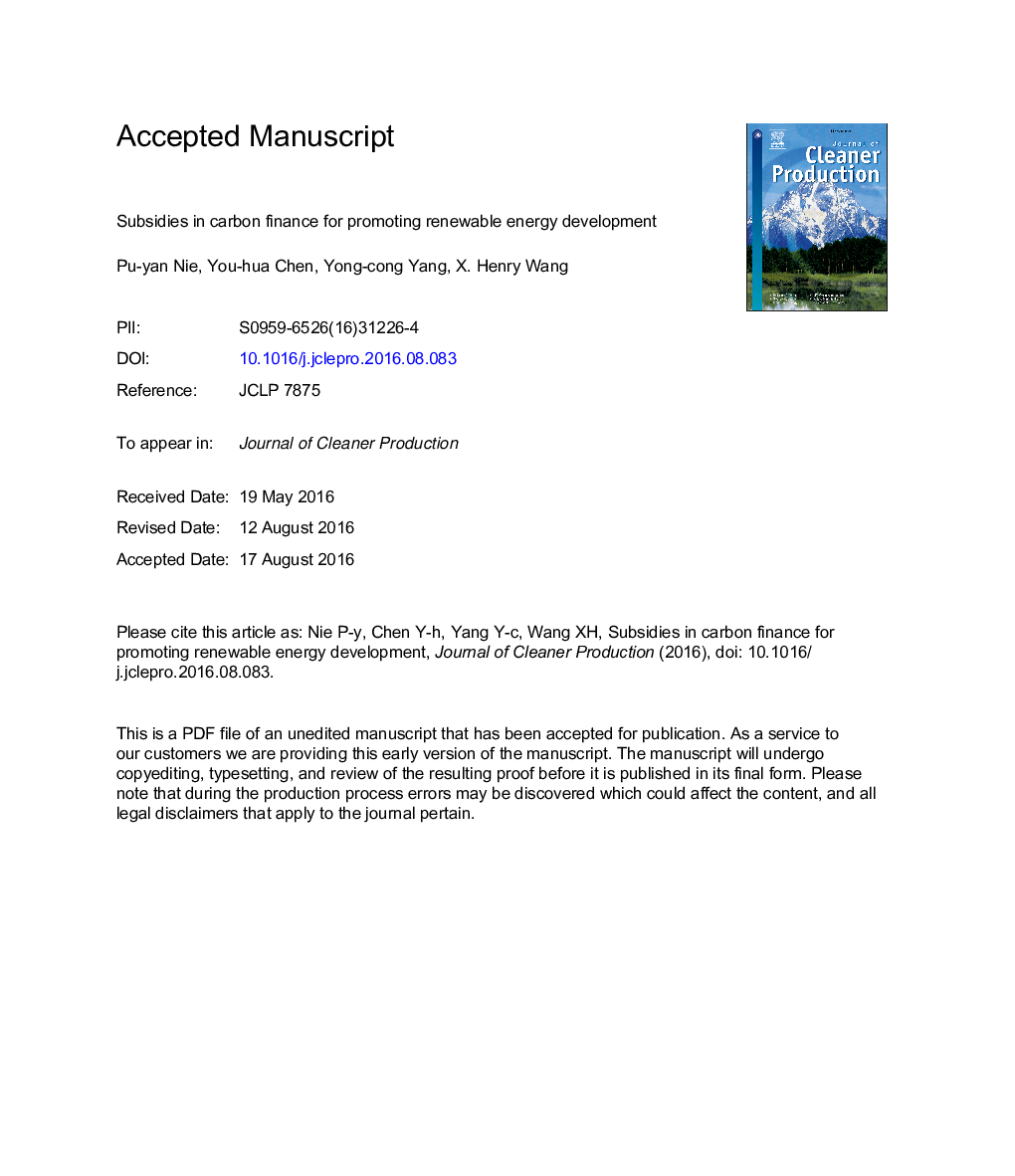| Article ID | Journal | Published Year | Pages | File Type |
|---|---|---|---|---|
| 8100650 | Journal of Cleaner Production | 2016 | 31 Pages |
Abstract
Faced with decreasing exhaustible nonrenewable resources and climate change resulting from the use of fossil energy, it is urgent to accelerate the development of renewable energy. But the development of renewable energy requires abundant financial support both from banks and governments. This article considers bank loans to develop renewable energy and highlights the effects of government subsidies. By using a microeconomic model and taking all stakeholders including the government, banks and shareholders of the firm into consideration, this study finds that government subsidies raise outputs and debt levels of renewable energy firms and improve shareholder value as well. More importantly, financial debts stimulate firms' outputs but decrease the net profit per unit of debt due to the limited liability effects. Finally, subsidy policy plays a critical role in renewable energy development because environmental efficiencies of subsidies decrease with the subsidy degree. Other valuable conclusions would be achieved if principal-agent problem and other corporate governance factors are employed.
Keywords
Related Topics
Physical Sciences and Engineering
Energy
Renewable Energy, Sustainability and the Environment
Authors
Pu-yan Nie, You-hua Chen, Yong-cong Yang, X. Henry Wang,
